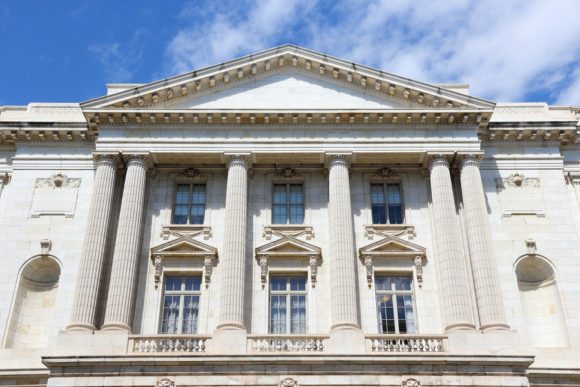President Donald Trump on Wednesday backed away from a bipartisan deal from two U.S. senators to stabilize Obamacare by restoring subsidies to health insurers, one day after signaling his support for the plan.
The agreement reached by Republican Senator Lamar Alexander and Democratic Senator Patty Murray would continue billions of dollars of subsidies to insurers for two years to help lower-income Americans obtain medical coverage. Trump last week announced that he would end the subsidies, potentially creating chaos in the 2018 health insurance markets set up under Obamacare.
“I am supportive of Lamar as a person & also of the process, but I can never support bailing out ins co’s who have made a fortune w/ O’Care,” Trump wrote on Twitter on Wednesday.
On Tuesday, Trump had indicated support of the agreement during a news conference, saying the White House had been involved in the negotiations and that the agreement would be a “short-term solution” that would “get us over this intermediate hump.”
During Tuesday’s news conference, he also made clear that he wanted broader legislation to repeal and replace Obamacare and that he still considered the subsidies a government handout that had enriched insurance companies.
He also told a conservative think thank, “While I commend the bipartisan work done by Senators Alexander and Murray … I continue to believe Congress must find a solution to the Obamacare mess instead of providing bailouts to insurance companies.”
Trump’s tweet on Wednesday could undermine efforts by proponents of the deal to build Republican support for it.
Fate Unclear
The Alexander-Murray proposal would meet some Democratic objectives, such as reviving subsidies for Obamacare and restoring $106 million in funding for a federal program that helps people enroll in insurance plans.
In exchange, Republicans would get more flexibility for states to offer a wider variety of health insurance plans while maintaining the requirement that sick and healthy people be charged the same rates for coverage.
The subsidies compensate private insurers for reducing deductibles, co-payments and other out-of-pocket expenses for low-income customers. They are known as cost-sharing reduction payments.
The president’s move last week to discontinue subsidies was part of his effort to dismantle the 2010 Affordable Care Act, known as Obamacare, through executive actions because his fellow Republicans who control Congress have failed to pass legislation to repeal and replace the law.
While the two senators’ proposal has broad Democratic support, it is unclear how many Republicans will endorse it and whether Senate Majority Leader Mitch McConnell and House of Representatives Speaker Paul Ryan will allow a vote on it.
Republican Senator Susan Collins, a moderate who helped kill earlier efforts to repeal and replace the healthcare law, said she backed efforts to shore up Obamacare but that it remained unclear if there would ultimately be enough support.
“Now, the White House is sending conflicting messages,” she told CNN in an interview on Wednesday, adding that the insurer payments had been “mischaracterized” as a boon for the industry.
Collins said she did not know if McConnell would schedule a vote but that “if it comes to the floor, I think the votes are there.”
Republicans, describing Obamacare as ineffective and a massive government intrusion in a key sector of the economy, have sought for seven years to repeal and replace it. Scrapping the law was also a top Trump campaign pledge.
Democrats have fought to defend Obamacare, which extended health insurance to 20 million Americans.
(Reporting by Yasmeen Abutaleb; Additional reporting by Roberta Rampton; Writing by Will Dunham; Editing by Bill Trott)
Was this article valuable?
Here are more articles you may enjoy.



 Viewpoint: Runoff Specialists Have Evolved Into Key Strategic Partners for Insurers
Viewpoint: Runoff Specialists Have Evolved Into Key Strategic Partners for Insurers  Preparing for an AI Native Future
Preparing for an AI Native Future  Zurich Insurance Profit Beats Estimates as CEO Eyes Beazley
Zurich Insurance Profit Beats Estimates as CEO Eyes Beazley  Former Broker, Co-Defendant Sentenced to 20 Years in Fraudulent ACA Sign-Ups
Former Broker, Co-Defendant Sentenced to 20 Years in Fraudulent ACA Sign-Ups 

